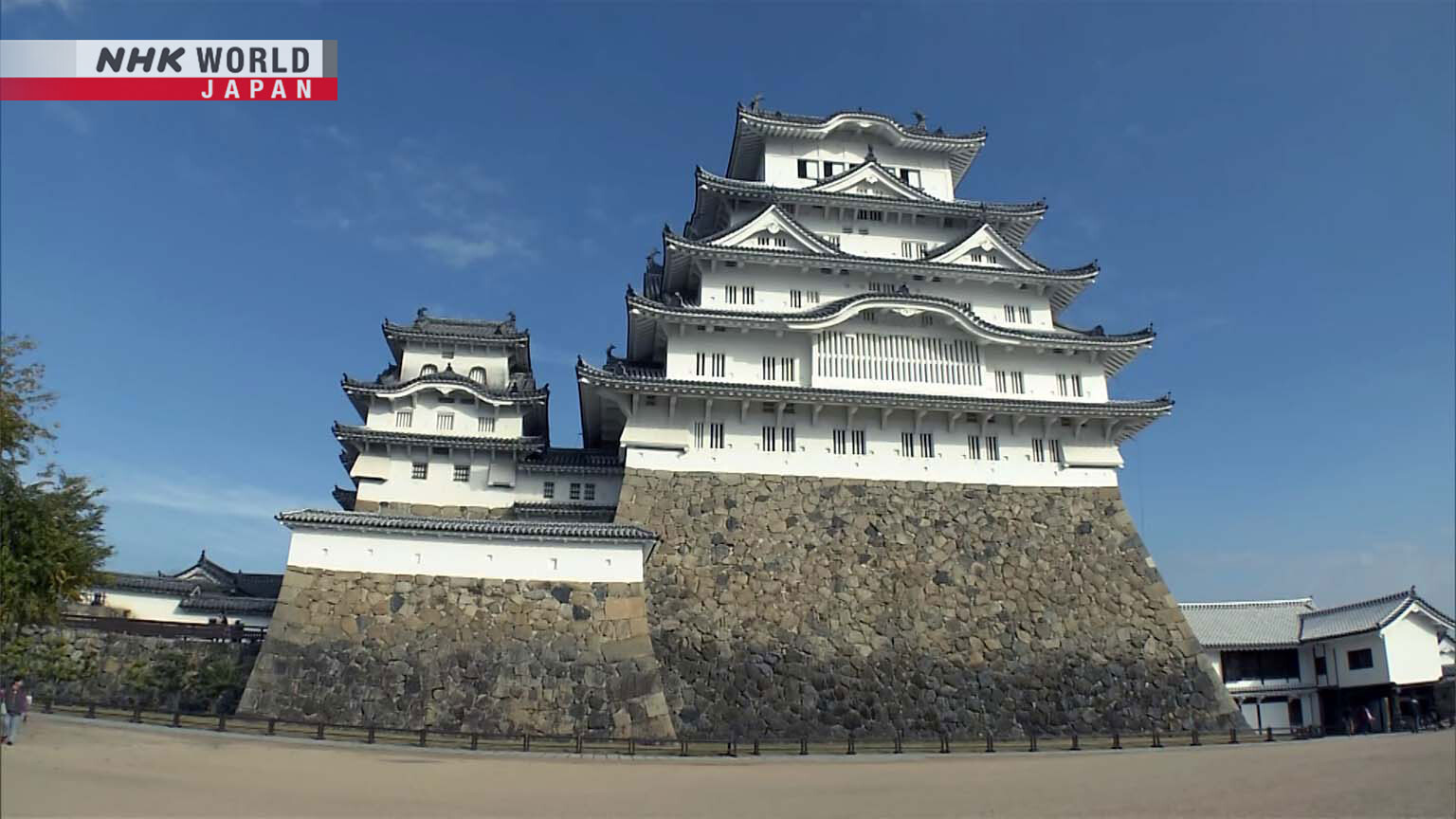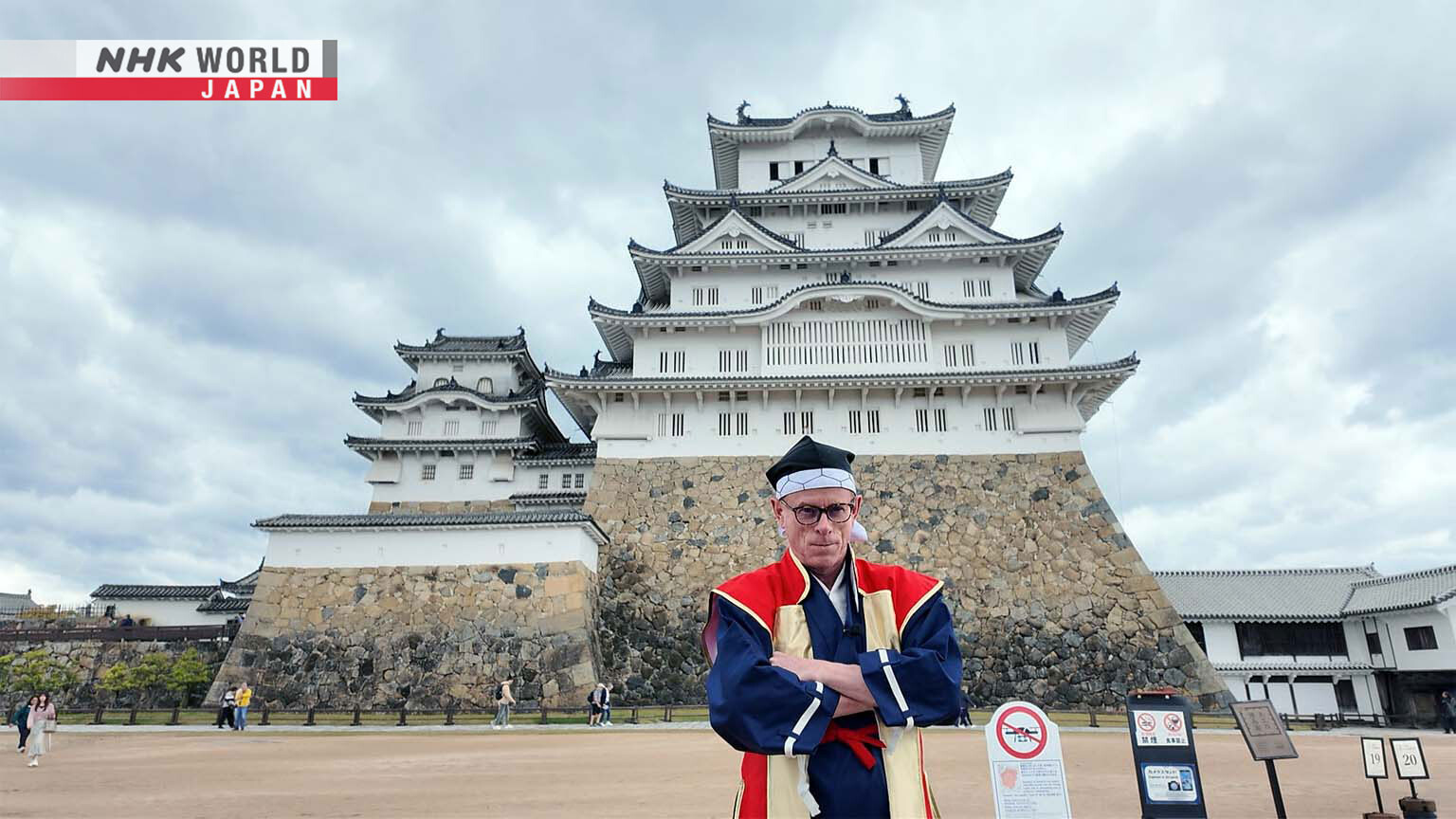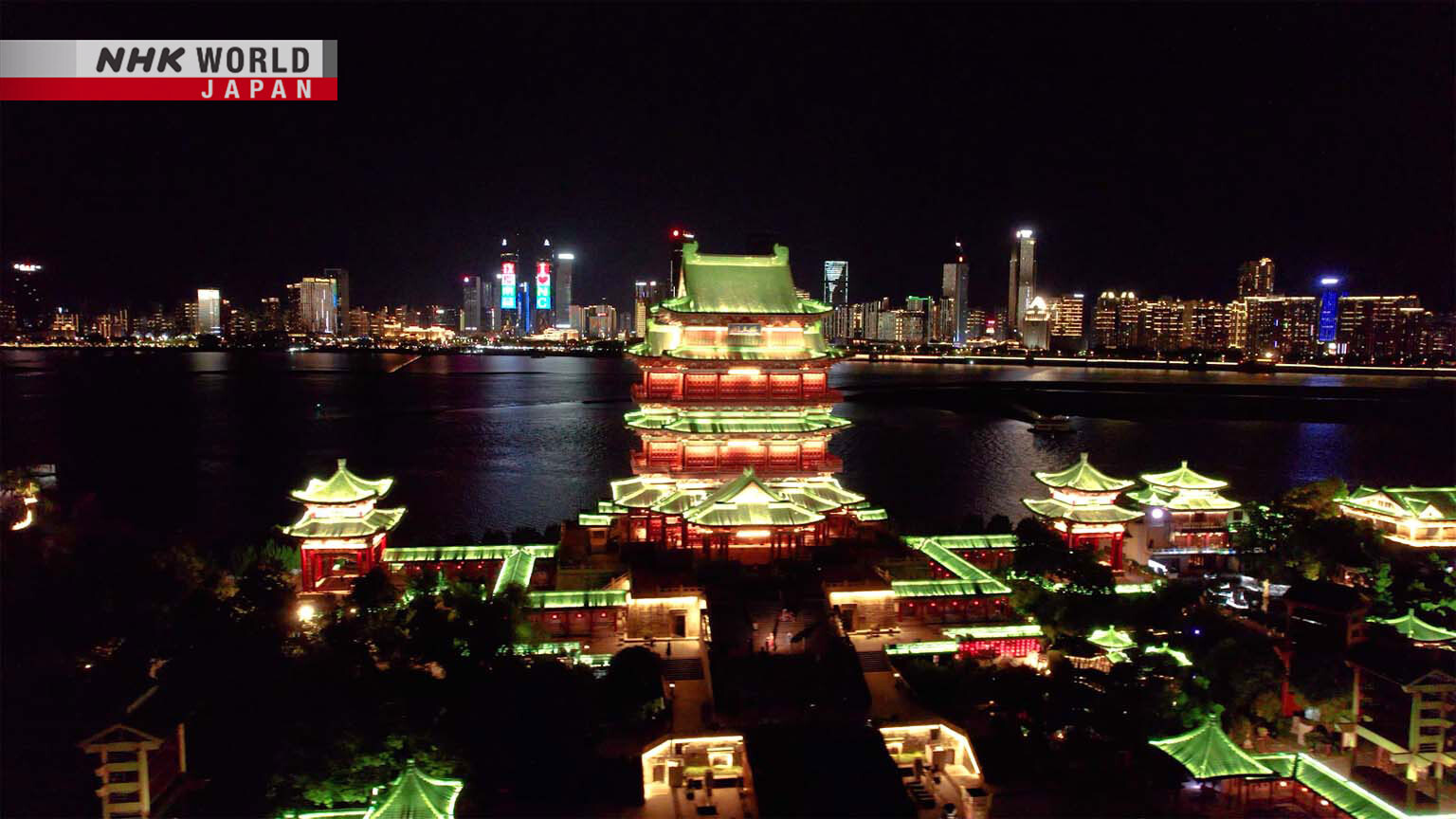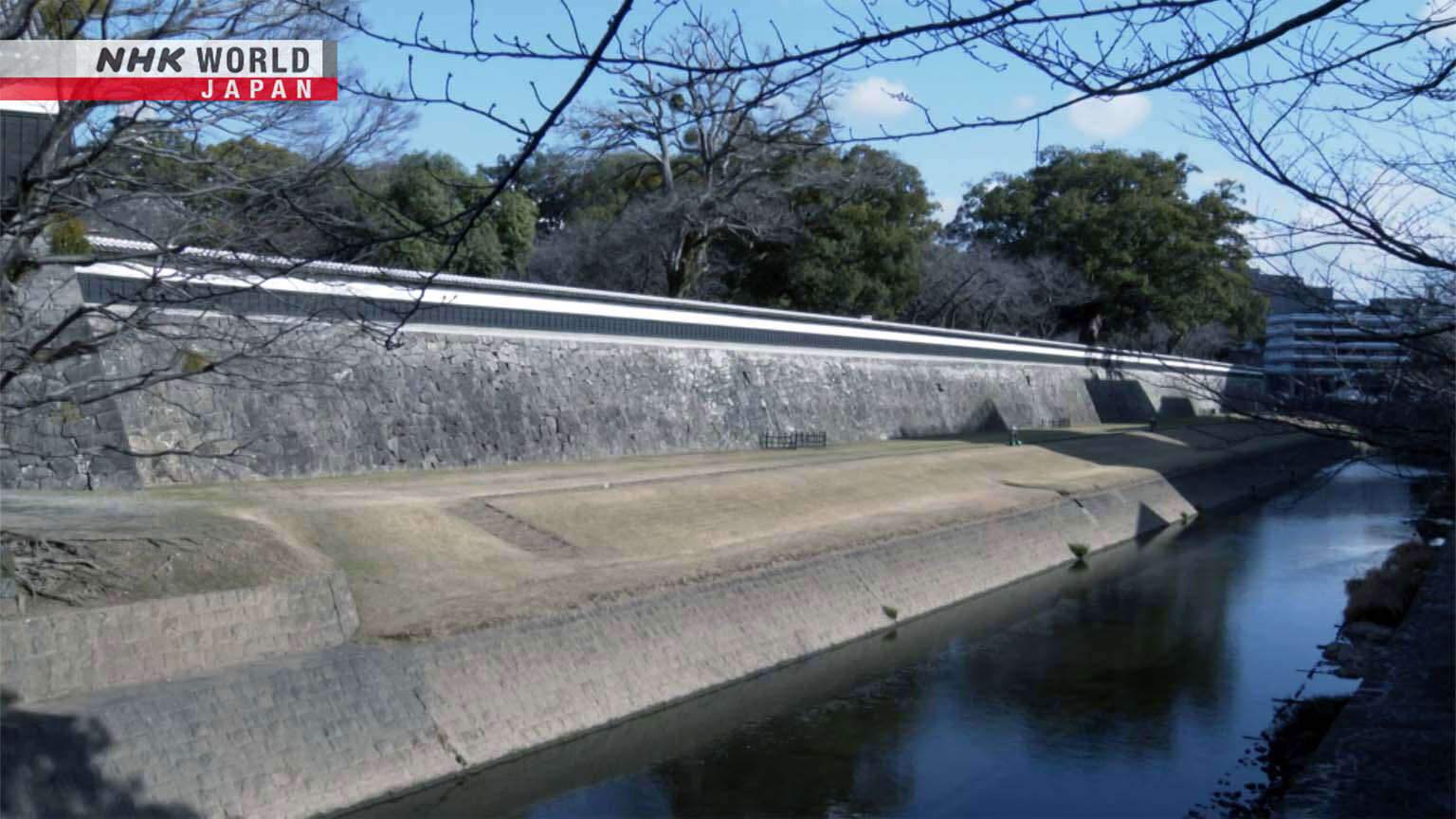Castle
In this episode, poet and literary translator Peter MacMillan explores Himeji Castle in Hyogo Prefecture and examines words and expressions related to Japanese castles.




Transcript
"Yukigesho"
"Karakurenai"
The Japanese language is rich in unique expressions that reflect nature and culture.
Magical Japanese.
Today's theme is "shiro," or "castle."
In 16th century Japan, warlords battled one another for control of the country.
Castles served important roles: they were the warlords' residences and also protective fortresses for their domains.
Let's take a look at castle-related expressions that live on today.
Hello, I'm Peter MacMillan.
I've come here to Himeji Castle, which was the first castle in Japan to be registered as a UNESCO World Heritage site.
Even after more than 400 years, the castle still retains much of its original appearance.
The Japanese word "shiro" is a general term referring to defensive structures,
but that exceptionally tall building over there has a more specific name.
"tenshukaku"
"Ten" means "the top," and "shu" means "protection."
"Kaku" refers to magnificent architecture.
The "tenshukaku" is the highest structure within the castle, and is located at the center of the castle complex.
During battles, the "taisho," or general, would position himself there to survey the enemy from above.
"ikkoku ichijo no aruji"
"Ikkoku" means "one fiefdom or domain," and "ichijo" means "one castle."
"Jo" is another reading for "shiro;" "aruji" means "ruler."
The phrase is used for someone who has autonomous leadership of an organization, like the ruler of a territory.
He started his own business, so he could be in charge of his own life,
and now he is "ikkoku ichijo no aruji," captain of his own ship.
"ikkoku ichijo no aruji"
Himeji's main keep is six stories tall, and is connected to a further three small towers.
The white "shikkui" plaster, coating the castle's exterior, gives it an immaculate appearance.
If I were a samurai warlord, I wouldn't mind living in such a beautiful citadel.
Actually, that reminds me of another word.
"nejiro"
"Ne" is "root."
"Nejiro" is a castle that served as a base, and is where the general would live.
The word now refers to something that forms the foundation of a project or lifestyle.
She does online video streaming aimed at young viewers, as the "nejiro," base, of her journalistic work.
"nejiro"
"fuyajo"
This literally means "a nightless castle."
It comes from a castle in ancient China, that is said to have been illuminated by the sun, even at night.
Today, the word is commonly used for neon-lit entertainment districts, that are bustling at night.
Shinjuku is a "fuyajo," nightless castle, full of shining lights until morning.
"fuyajo"
In Japanese, "kizuku" means "to build," and the verb is strongly associated with castles.
"Ki" is an old word for "shiro;" "zuku" means "to build."
"Kizuku" originally meant "to build a castle."
The word has also come to be used for things that require time and attention to build, such as strong relationships.
For example:
"katei o kizuku"
build a family
"shinrai kankei o kizuku"
build a trusting relationship
European castles were built with high outer walls surrounding entire towns, so that everyone lived inside the castle walls.
In Japan, the walls only surrounded the castle itself,
and the lord's men and their families and the townsfolk lived outside the castle walls.
Himeji Castle was built in a time of perpetual conflict among feudal lords.
Words and phrases related to castle sieges are now used to describe situations in business and relationships.
Many castles built on flat land were defended by "hori," or "moats," instead of high walls.
These were filled with water to stop the enemy in their tracks.
"sotobori o umeru"
"Hori" changes to "bori," when preceded by another word.
"Sotobori" is the outermost moat surrounding a castle.
"Umeru" means "to fill in."
The phrase refers to a clever strategy: instead of launching a direct assault on an enemy's castle,
attackers would fill in the outer moat to weaken the castle's defenses.
Now, the phrase is used to mean someone intentionally taking a roundabout way to achieve a goal.
To hunt down the main culprit, the police decided to "sotobori o umeru," use a roundabout strategy, and arrest the accomplices.
To win her heart, he decided to "sotobori o umeru," use a roundabout strategy, of getting to know her friends.
"sotobori o umeru"
The attackers have finally breached the castle gate!
honmaru o semeru
"Honmaru" is the main part of a castle; it includes the "tenshukaku."
Today, it refers to the central or critical part of a project or organization.
"Semeru" means "to attack."
The police obtained confessions from the accomplices, and will "honmaru o semeru," try to arrest the main culprit.
He's gotten to know her circle of friends, and will now "honmaru o semeru," try to achieve his central goal.
"honmaru o semeru"
Under intense assault, the castle occupants are about to surrender!
"gajo o kuzusu"
The word "gajo" came from China, and means the place where the enemy's leader is located.
Like "honmaru," today it refers to the heart of an organization or movement.
"Kuzusu" means "to destroy or break down."
The phrase means to deliver a blow to an entity, and thus destroy its stronghold.
It's used in various situations including business, politics, and sports.
If we can grab enough market share with our new product, we can "gajo o kuzusu," take down, our rival.
"gajo o kuzusu"
In the springtime, Himeji Castle is surrounded by cherry blossoms.
I hope you will visit and enjoy these spectacular views.
See you next time. Bye!